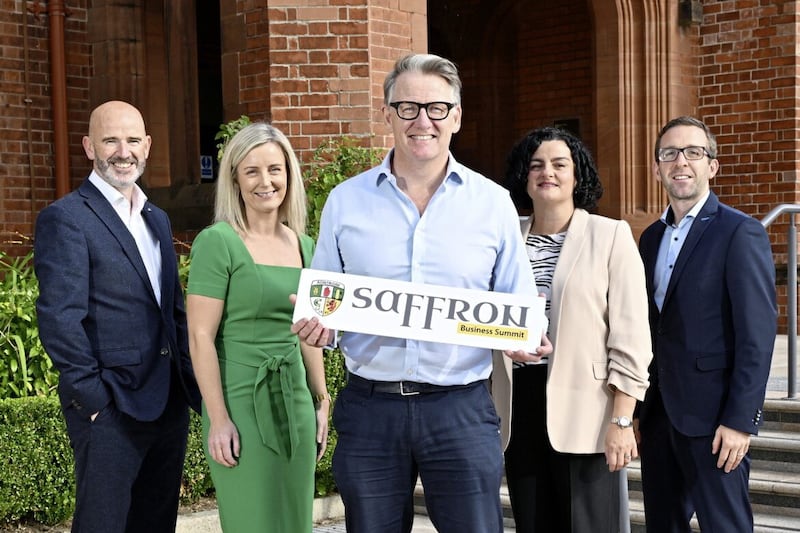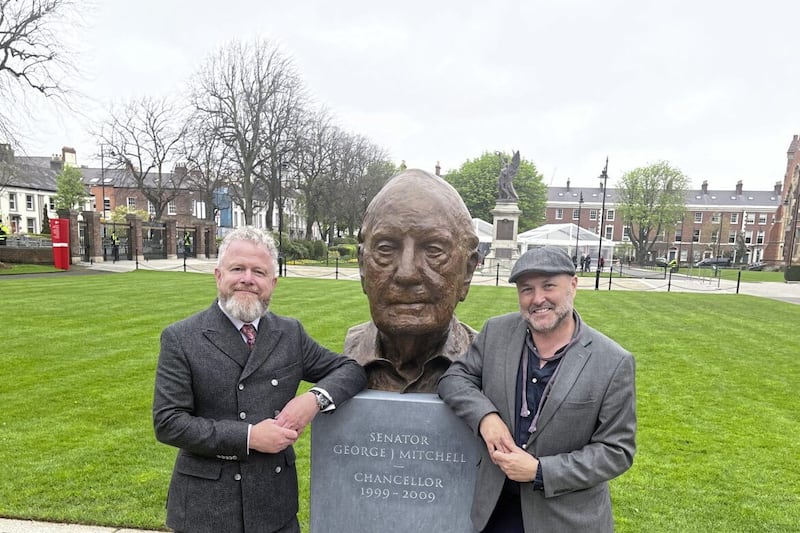A FEW weeks back I was sitting at my computer late at night trying to write a speech I was going to make at Queen’s University’s Business School the next morning.
To be honest, I was watching YouTube clips from the Irish matches at the Rugby World Cup and just about anything else I could find, rather than get into the actual speech itself. ‘Procrastination is the thief of time’ as somebody famous once said.
Eventually, I got started, the speech was the opening remarks of something new we had decided to try as part of the work of the Saffron Business Forum, the business network that is raising funds to support Antrim GAA.
We called it the Saffron Business Summit and the idea was to investigate, through those that have been on the journey, the growth, financing, and sale of businesses. Sponsored by KPMG, Tughans, Ulster Bank and Whiterock Finance, we had over 200 people registered for it, and it turned out to be a really motivating, interesting and informative morning.
Paul McErlean
- Serious tourism investment and increased marketing spend must continue
- Some lessons Northern Ireland could take from the Basque Country
I’ve written about the Saffron Business Forum before, but for those not aware, it’s a membership-based business network that was largely the brainchild of a very special character from Dunloy called Tony Shivers.
Tony’s day job is managing director of one of the most successful electrical contracting businesses here, Premier Electrics, but he’s also the dynamo which drives much of the extra fund raising in Antrim and officially, he’s the assistant treasurer on the County Board.
Donal Murphy, group financial controller of leading recruitment company, MCS Group, is the Treasurer and he does a brilliant job too. When it comes to finance, Antrim is in good hands, though we need to be now, as the new, state-of-the-art strength and conditioning suite at Dunsilly nears completion and needs to be paid for.
Back to my speech; I’d left YouTube running in the background and I heard it move through some rugby clips and onto a film from a guy called Conor Neill entitled ‘How to start a speech’. I said to myself, there’s some invisible hand at work here, I’ll watch it.
He had some good tips, one of which was to start with a factoid. Mine was this: research for Catalyst’s annual NI Deal Tracker report has revealed that £139m was invested across 89 deals in locally based innovation and growth stage companies in 2022. That is a 29 per cent rise in the value of transactions completed the previous year when £107m was invested across 68 deals and is more than triple the £44.3m figure from 2019.
The above are equity deals, in other words, people and funds invest money in companies in exchange for a shareholding in the business. It’s a whole other ball game from just going to the bank and borrowing money, though of course, there is still a very big role for debt and credit finance, as we heard on the day also.
Mr Neil’s recommended best way to open the speech though is to start with a story. As he said, we’re conditioned from our earliest years to know when a story is coming, we sit up and lean in, we’re interested. And we are often interested because stories are usually centred around people.
The people I talked about were Martin Naughton, the founder of Glen Dimplex and Harold Ennis, the founder of Boxmore. They were two of the titans of business here when I first entered the workplace and I have always had great admiration for them, not just because of their commercial success but because they gave something back.
My experience of them was when they were the first chairman and vice chairman of InterTradeIreland, the cross-border trade body set up after the Good Friday Agreement. They did a superb job and showed real leadership at an important time.
The summit was so successful because the new leaders in business here told their stories. David Maxwell, founder of Boojum, told us the story of running Irish bars in Arizona before coming home to run Boojum. Patrick McKeever of McKeever hotels told the story of how he started life as a 14-year-old trainee chef.
And most interesting of all for me was Paula Kane from Ashdale Care, who has created and very successfully sold a large care home business. When she was asked why she had done it, she said that she’d seen first-hand how badly some care homes in England had been run and she wanted to do a better job – for the sake of the children and people getting the care.
There was nothing arrogant about what she said. It was pure compassion and she and her family built a brilliant business out of it. That’s just a snippet from a great morning - and there are more stories to come.







